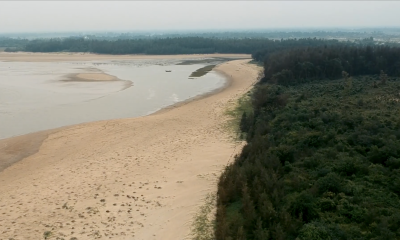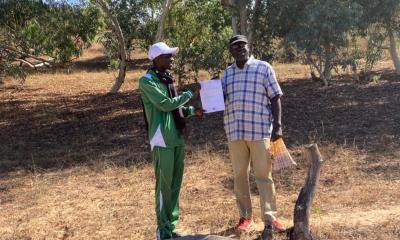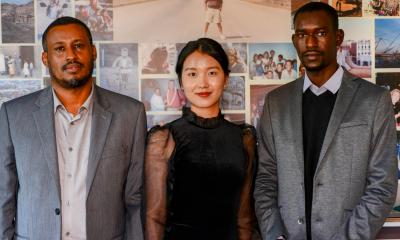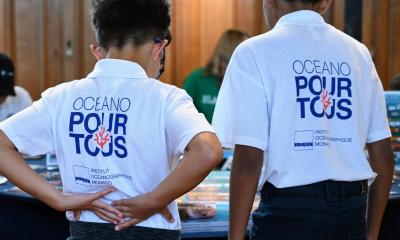Amazonas communities help monitor real-time air quality
2022 Feb 25
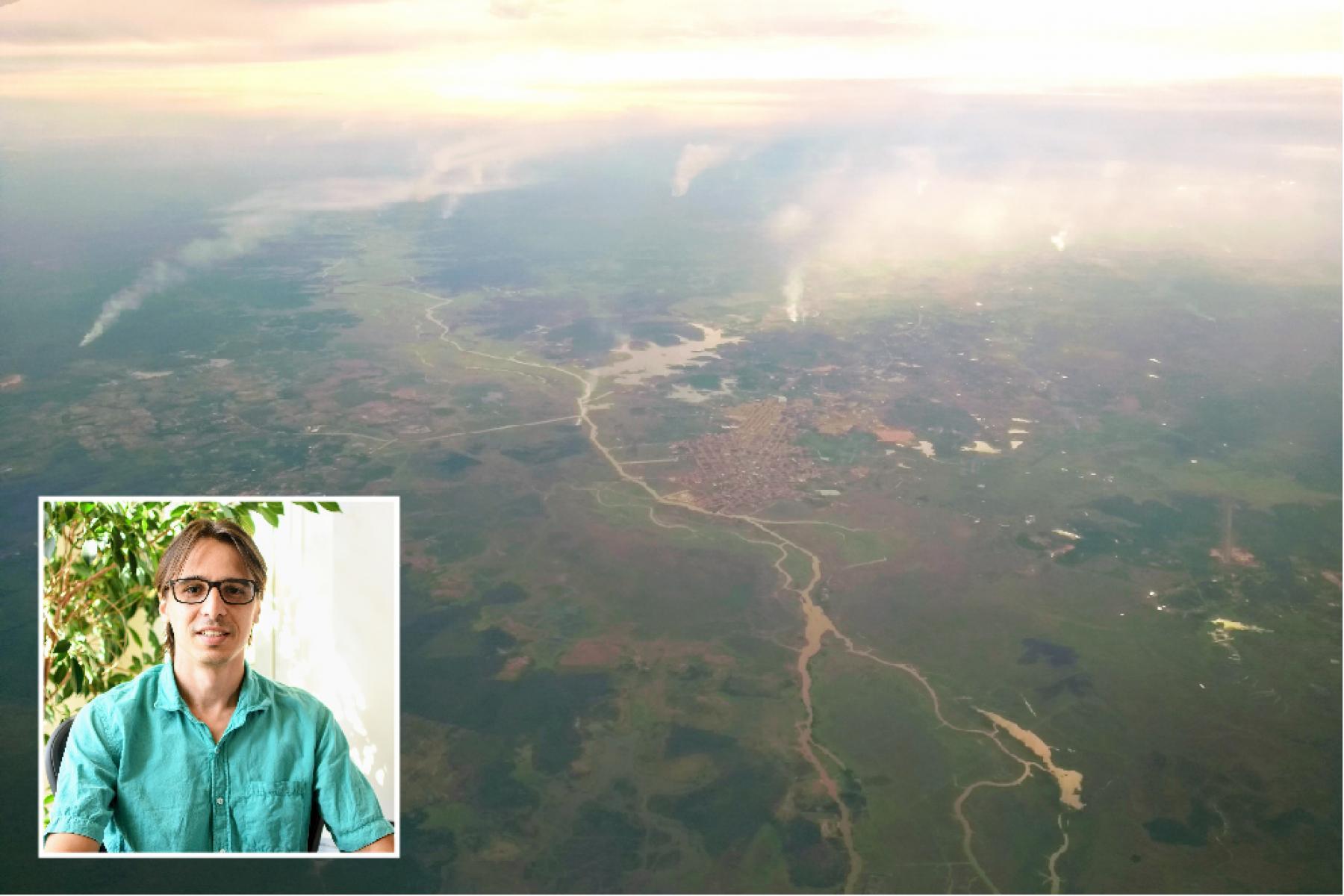
A climate change project funded by the Cuomo Foundation
A former Cuomo Foundation-funded IPCC Scholarship recipient, whose PhD thesis “The impacts of forest fires on the air quality of a tropical megacity” was completed between 2019 and 2021, has launched a new research initiative. Brazil’s Igor Oliveira Ribeiro and his team began the new project in late 2021 in Amazonas, a massive state in north-western Brazil that is almost entirely covered by the Amazon rainforest and is home to the capital, Manaus. The Cuomo Foundation is supporting this new applied research, entitled “Alerting people to the risks of fire smoke – EducAIR ” . The pilot phase will be implemented at eight public schools in the Manaus region and over a thousand pupils will be taught how to analyse the data and use scientific techniques. The researcher, Igor Oliveira Ribeiro, original presentation about this innovative project is included below.
Pollution, whatever it may be, is undeniably causing significant damage to society and the environment. According to the World Health Organization (WHO) , about 4.2 million deaths each year are a result of exposure to air pollution. According to the WHO, a large part of the world population (91%) and about 2 billion children live in places where air pollution exceeds the levels recommended by the WHO. Furthermore, recent studies show that air pollution costs every human being a reduction in average life expectancy of 2 years.
The sources of emission of these pollutants are diverse around the world, both by man and by nature, ranging from a simple electronic household device on standby to emissions from cars, industries, volcanic activities, among others. An aggravating factor is that air pollution has no borders. Pollutants can travel hundreds of kilometers and there are no barriers. In the Amazon, forest fires and deforestation play a significant role in the high concentration of particulate matter in the atmosphere.
The main factors that drove the increase in the intensity and frequency of forest fires and deforestation were the events of intense droughts, land grabbing, illegal logging, socio-environmental conflicts, among others. With that, the reality is that this smoke in the sky of the Amazon, an invisible enemy, has caused damage to all the peoples of the region, especially the most vulnerable such as the indigenous and riverine people. For example, in the years 2020/21, an increase in hospitalizations for respiratory and cardiovascular diseases was observed and contributed to the worsening of cases by Covid-19 in the region.
The challenges to combat this reality of air pollution and degradation of the Amazon are great. Education is certainly an important part of improving this reality. Teachers can educate their students so they can make a difference in the future – whether in their personal lives or as environmental scientists and inventors.
EducAIR – Environmental Education Program on Air Pollution was designed to contribute to changing the reality of the next generation of Amazonian peoples in the face of the great threat of fires in the Amazon and the impacts of their emissions on air quality, aiming to awaken internal environmentalism in the students, especially those from public schools. The program was designed to show and make Amazonian children aware of how our actions affect air quality in both positive and negative ways. Informed citizens build a better world. By tapping into this knowledge and information about what we breathe, we hope to create a shared understanding of what the right steps forward might be.
Among the objectives of EducAIR, making elementary school students and, consequently, their families aware of the importance of clean air and Amazon conservation is the central pillar. Children will learn to measure particulate air pollution in their school and community through a real-time monitoring sensor and the SELVA platform, an electronic environmental surveillance system, both developed by project participants, most of which are volunteers who believed in the idea. From the understanding of this information, children will be introduced and motivated to simple actions they can take to help improve local air quality so that everyone can live, study and play in a healthy environment.
Our program brings students hands-on activities designed to foster collaboration and critical thinking skills on different topics related to air pollution, such as: What’s in the air? What are the sources of air pollution? Fires in the Amazon and their effects on air quality; Air quality monitoring; Effects of air pollution on human health and ecosystems; conservation of the Amazon and what to do to reduce air pollution.
Faced with the current reality of the COVID19 pandemic, many students are not having face-to-face classes and we, as teachers, understand how difficult it is to bring knowledge to our students. As a short-term alternative, to help our students get their first knowledge of air pollution, we are also building materials in the digital world to be used in distance, hybrid or traditional learning situations. Our students will be able to find various information and educational materials on the EducAIR project website (in progress), follow the monitoring of air quality in real time by SELVA (www.appselva.com.br) and on EducAIR’s Social Networks (@educ.air), where we share in a very friendly way several fundamental concepts, in addition to being able to exchange information with the project participants through social networks.
In addition to the digital world, EducAIR will bring several practical and playful activities, in which students leave the classroom to perform scavenger hunts, games, experiments and demonstration of concepts and use data from mobile sensors and technology installed in their school to measure their own exposure to particulate pollution, that is, data to analyze and ideas to transform knowledge into actions to protect themselves. There is a range of educational and non-educational actions that may take place after the workshops, such as using the data and what has been learned for activities at science fairs, community engagement or environmental awareness campaigns. See how amazing this is, we are bringing knowledge and technologies from the natural sciences to students, awakening their passion for it. This is all with the involvement and follow-up of our air quality scientists, who will be side by side with students and love to discuss student findings, answer questions and help their students discover more about air quality and conservation in the Amazon. . Empowering young students through science means more than just learning about that topic, it is about transforming this knowledge into positive and lasting impacts for the Amazon and its people and, consequently, for the entire planet. The EducAIR project will unite theory and practice, through environmental education and air quality monitoring carried out by the students themselves.
With the SELVA platform and air quality monitoring sensors in schools, our students and the entire community will be able to know in real time what they are breathing and plan actions in advance to improve air quality and, consequently, well-being. It is the first time that this will be done in the Amazon.
This project was only possible with the support of the Cuomo Foundation, which saw the importance and the need to start a change in mentality about air pollution from forest fires in the Amazon, alerting our children about the impacts of air pollution on health human. The following local institutions also support this project: Universidade do Estado do Amazonas (UEA) and Fundação Universitas de Estudos Amazônicos (FUEA).
Igor Oliveira Ribeiro
Post-Doc on Regional Climate Change, Vulnerability, Impacts and Adaptation – Cuomo Foundation/UEA


 Français
Français